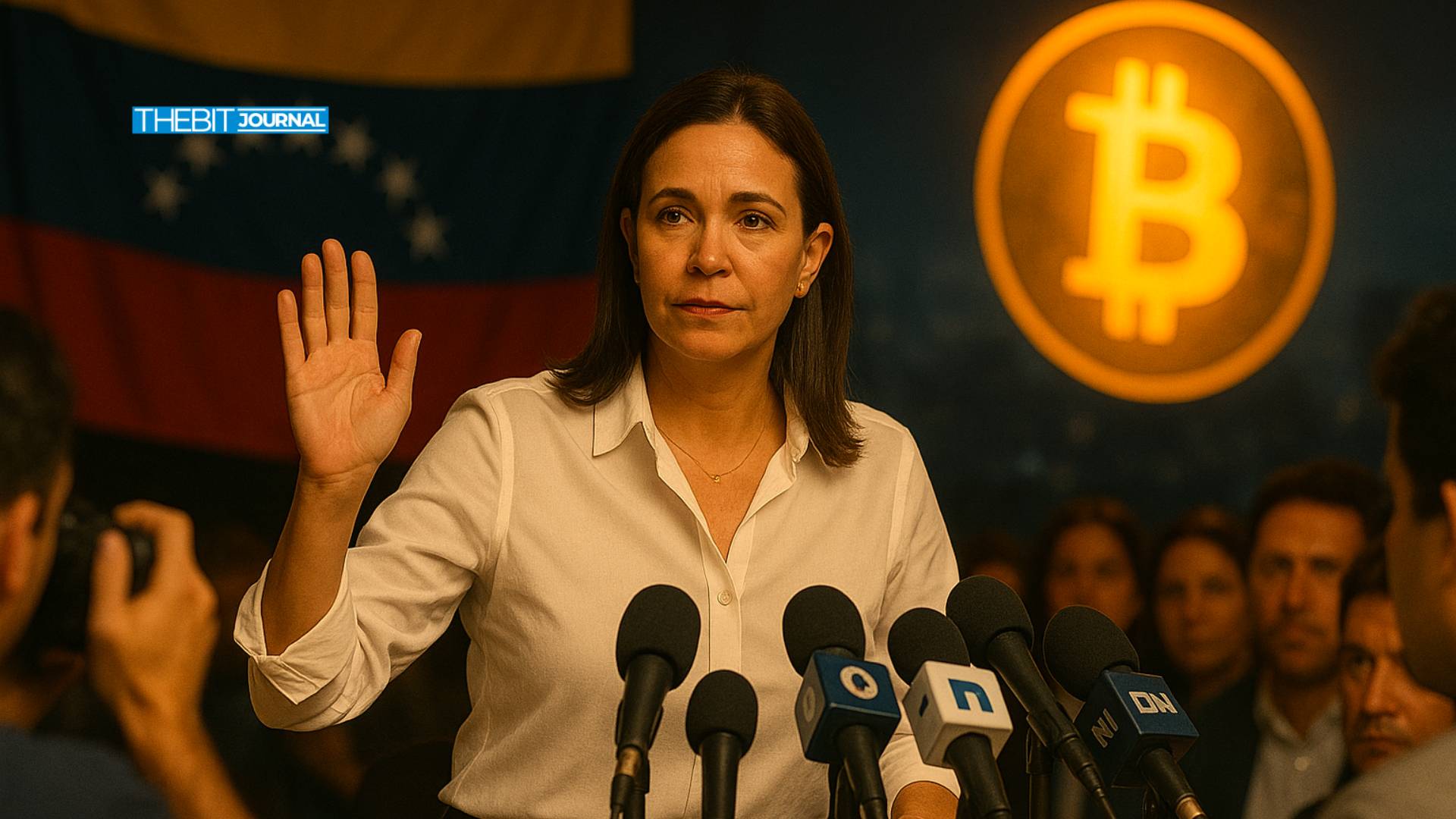


0
0

When Venezuelan opposition leader María Corina Machado accepted the 2025 Nobel Peace Prize, she did more than claim a global stage. She indirectly shone a light on Bitcoin’s role in resistance and financial sovereignty.
In her speeches and interviews, Machado has described Bitcoin not as speculative hype, but as a lifeline in a crisis-racked nation. Her Nobel win lends a surprising, real-world weight to what many consider Bitcoin’s idealistic narrative.
Machado’s advocacy long preceded the prize. In prior interviews, she said, “Some Venezuelans found a lifeline in Bitcoin during hyperinflation, using it to protect their wealth and to finance their escape.” Her framing is powerful: Bitcoin bypasses state-imposed barriers and gives control back to individuals.
The Nobel Committee awarded her the prize for democratic activism. By extension, observers see the decision as acknowledging not just her political battle, but the financial tools she champions as part of that struggle.
In Venezuela, economic crisis is everyday life: runaway inflation, restricted currency conversions, capital controls. The bolívar’s collapse forced many citizens to find alternatives. Bitcoin became one. Machado’s consistent message is that Bitcoin is not just a trading instrument but a bulwark against monetary repression.
Her rhetoric aligns with a broader narrative inside crypto: that money grounded in rules, not rulers, has value when people live under regimes that break faith with their citizens. Machado’s Nobel vindicates that narrative.
Still, critics caution: a political accolade does not transform Bitcoin into a flawless tool. Scalability problems, regulatory risk, and environmental debate remain. Yet in regions like Venezuela, where fiat systems fail, the theory and the lived reality converge.
Machado’s win reframes Bitcoin. For many observers, it’s no longer just a speculative asset. It becomes embedded in human rights, democracy, and financial freedom.
For regions suffering monetary collapse, it signals legitimacy. If a Nobel laureate uses Bitcoin publicly to resist financial suppression, others may follow.
States may recoil. An overt embrace of Bitcoin in opposition may provoke stronger regulatory or legal backlash. The narrative could push governments to confront whether crypto is political or financial.
One prize doesn’t change tech. Bitcoin still faces adoption, usability, and institutional inertia challenges. But the symbolism may shift where people look.
To see whether this moment shifts real value and not just rhetoric, experts will track:
Adoption in crisis zones: wallet growth, transaction volume from countries with failing fiat regimes
On-chain flows: particularly cross-border and remittance-related transfers
Reserve allocations: governments, NGOs, institutional funds quietly adding Bitcoin
Narrative metrics: how much Bitcoin appears in policy debates, human rights rhetoric
Regulatory reactions: how states respond, especially where monetary control is central to power
These metrics show whether the Nobel moment becomes a turning point, or a symbolic peak.
María Corina Machado’s receipt of the Nobel Peace Prize gives Bitcoin more than a media blip. It ties the token to the story of freedom, control, and resilience. Her advocacy turns Bitcoin into more than code and markets, into a statement about what money means in a broken world. Whether this moment becomes a pivot depends on whether the tech, networks, and institutions can keep up. But the symbolic shift is real.
Q: Why is this Nobel award tied to Bitcoin significance?
Because Machado’s activism has long incorporated Bitcoin as a tool in financial resistance, the prize gives that stance mainstream recognition.
Q: Does this change Bitcoin’s fundamentals?
Not immediately. The tech, network, adoption, and regulatory landscape remain the same. What changes is perception and narrative.
Q: Could governments crack down harder now?
Possibly. If Bitcoin becomes tied to political opposition, states may intensify regulation or suppression.
Q: Is Bitcoin now a “political” asset?
It was always political in many contexts. This event makes that role more explicit, but in freer societies, it may continue to act as financial infrastructure.
Read More: How Nobel Peace Prize Puts Bitcoin in the Spotlight">How Nobel Peace Prize Puts Bitcoin in the Spotlight
0
0
 Manage all your crypto, NFT and DeFi from one place
Manage all your crypto, NFT and DeFi from one placeSecurely connect the portfolio you’re using to start.